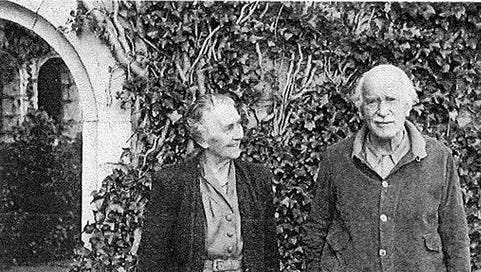It was not until recently that I discovered C.G Jung’s late essay ‘A psychological view of conscience’ (CW10). I learned from Jungian Analyst and scholar Murray Stein that it was a part of a collection of essays entitled ‘Das Gewissen’ and released by the C.G Jung Institute in 1958.
In this essay Jung differentiates between two levels of conscience, the moral and the ethical. The first relates to Freud’s theory of the superego while the latter to Jung’s theory of individuation, the archetypes, and the Pax Dei (the voice of God). Jung writes about how the differentiation between the moral and ethical level of conscience is important in psychological development. In a sense, individuation can be understood as the process of making one’s conscience conscious.
But if the voice of conscience is the voice of God, this voice must possess an incomparable higher authority than traditional morality. Anyone, therefore, who allows conscience this status should, for better or worse, put his trust in divine guidance and follow his conscience rather than give heed to conventional morality.
If the believer had absolute confidence in his definition of God as the Summum Bonum, it would be easy for him to obey the inner voice, for he could be sure of never being led astray. But since, in the Lord’s Prayer, we still beseech God not to lead us into temptation, this undermines the very trust the believer should have if, in the darkness of a conflict of duty, he is to obey the voice of conscience without regard to the “world” and, very possibly, act against the precepts of the moral code by “obey God rather than men” (Acts 5: 29)” (par. p. 445, par 840)
The question of consciences role in psychological development and how to separate it from the voice of the often authoritative superego I discussed with Donald Carveth in episode 9 of Psychology & The Cross (who wrote important book ‘The Still Small voice - Psychoanalytic reflections of guilt and conscience’). Reading the essay of Jung made me realize there’s more to discuss and that it’s essential to return to the question of conscience's role in psychological development.
I shared the Jung essay with Donald as well as Sean McGrath, my philosopher and theology friend and they both found it fascinating and important to further discuss further. The recording of that conversation will make up the next podcast.
For those of you who want to deepen your understanding of this matter I recommend you to read the essay of Jung in beforehand. I found a link to a PDF version here.
Further recommended reading:
Murray Stein wrote the book ‘Solar and Lunar conscience - An Essay on the Psychological Foundations of Morality, Lawfulness, & the Sense of Justice’ taking as a starting point the essay by Jung.




I read that essay. That's one strange businessman, who had no clue that he could be swindled or lose money when doing an investment. Not even when he was warned did he understand this. And then he dreamt about "dirty hands". It is all very neat and instructive. But it bears the hallmarks of an invented story.
According to Jung's morality, we must go along with the archetypes and our moral instincts, whether or not the impulse is good or bad. However, it is the responsibility of consciousness to divest the moral impulse of its archaic character, i.e., it must be adjusted to the ways of conscious civilization.
So the real moral source is the unconscious, equal to the ethical aspect of conscience. The image that comes to mind is that of an impulse-driven blind man leading the seeing. In my view, in order to navigate correctly, we must use our conscious intellect and the wisdom acquired during the Christian era.
The difficulty with Jung's morality is that there are many different archetypes and instincts. Moral feeling can be shallow or it can be deep and far-sighted. The one person trusts the one moral instinct and the other person relies on the other. Who is right? On Jung's view, both are right, seeing that both persons rely on unconscious moral instinct. So he presents no solution to the moral problem.
Of course, in questions of morality, we cannot allow unconscious impulses to be our guiding spirit. Jesus takes the opposite view: say no to your impulses! Tear out your eye and cut off your hand, should they mislead you. Also the Ten Commandments teaches us to say NO to this and that. This is the only way of developing something akin to free will.
I also question Jung's view that Yahweh is amoral. On the contrary, I see him as extremely moral. He either gives expression to moral benevolence or moral rage. A human moral person has also these two aspects. Research finds that psychopaths are less violent and more temperate than moral persons.
From a modern standpoint, one could argue that Yahweh's behaviour is sometimes immoral. But it is hardly amoral, considering that He has strong moral motivations.